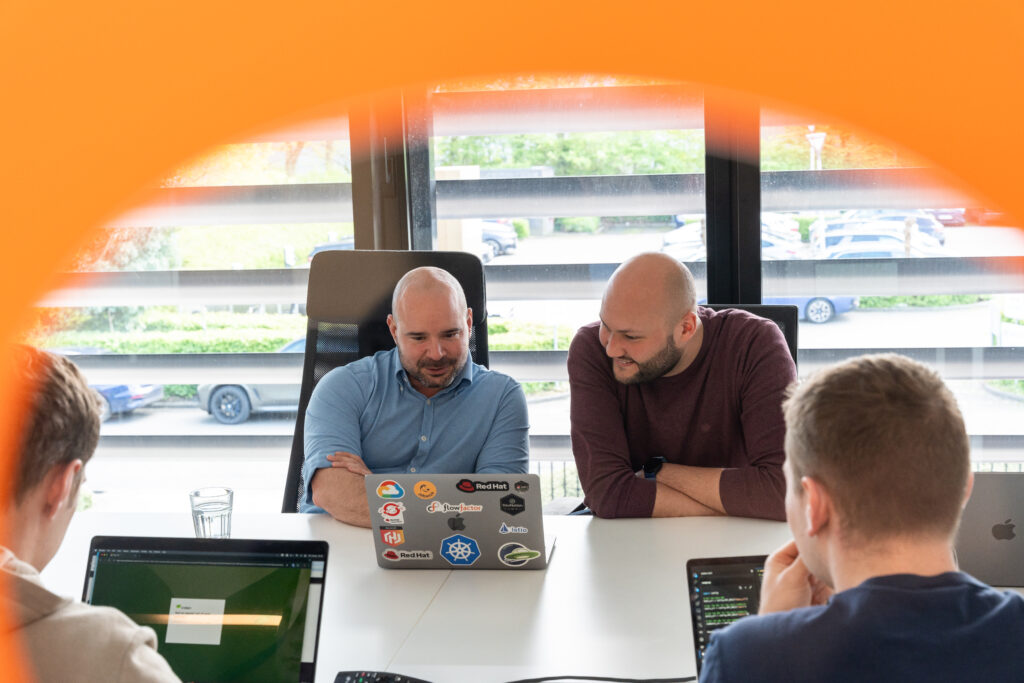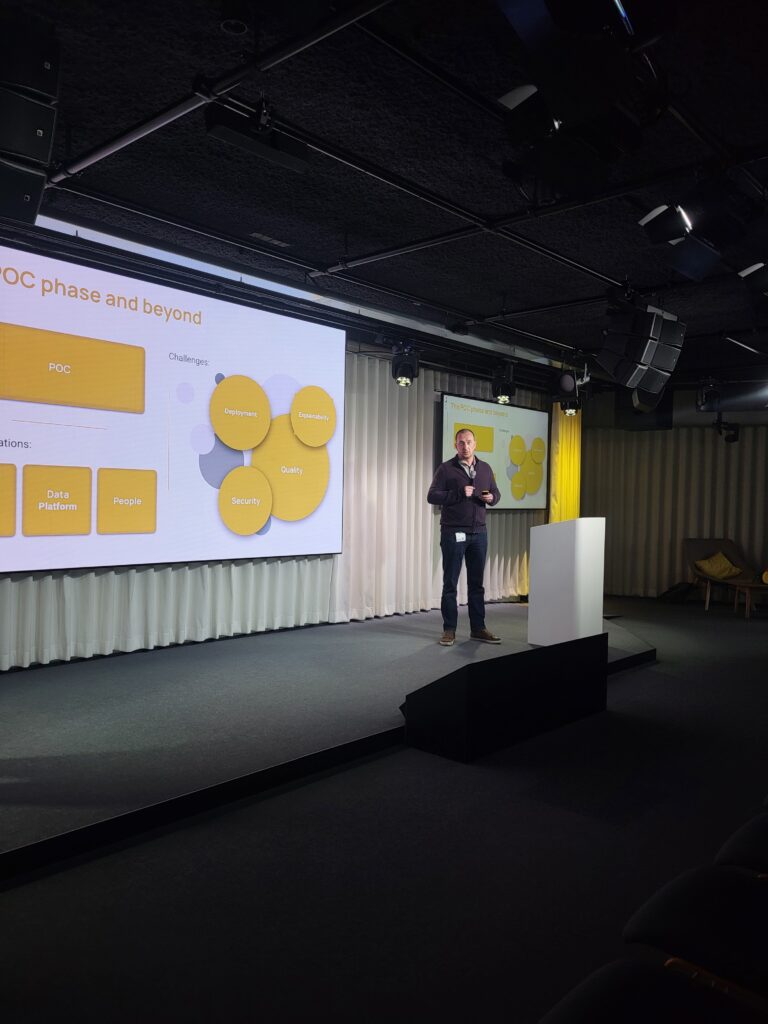The Google Cloud Data & AI Summit is an annual event that has become a major highlight in recent years. With a focus on Google Cloud’s key USPs, the summit is renowned for its wealth of news and announcements. This year’s summit was no exception. Although there were fewer announcements than last year, the impact was equally significant, with a particular emphasis on generative AI in the professional environment.
In this blog post, we’ve compiled the top five announcements that we believe will have the most significant impact.
Gen App Builder will be a game changer
The most significant announcement at the summit came from Gen App Builder. This platform allows developers, even those with limited machine learning skills, to quickly and easily leverage the power of Google’s foundation models, search expertise, and conversational AI technologies to create enterprise-level generative AI solutions.
Unlike most existing generative AI offerings for developers, Gen App Builder provides an orchestration layer that abstracts the complexity of combining different enterprise systems with generative AI tools. This makes it easier for developers to set up and deploy their apps.
Gen App Builder is the first turnkey solution that allows you to integrate generative AI into your own enterprise applications. You can apply a Bard or ChatGPT-like interface to your own company’s data sources, opening up enormous possibilities. The Cronos Group is already looking forward to getting started with this new technology.
In this demo, you can see how profound these new development possibilities are for a customer’s experience, with the example of a virtual agent supporting a customer in changing an order. Another demo shows how Generative AI can help you find the right information.
If you’re interested in building new generative AI-powered search and conversational experiences, check out this guide by Google Cloud.
Google makes AlloyDB available outside GCP
Another noteworthy announcement was the release of a new edition of AlloyDB, a PostgreSQL-compatible database service. Last year, Google launched AlloyDB for PostgreSQL, which provided businesses with a fully managed solution for running enterprise database workloads in the Google Cloud. This was a great option for migrating workloads from expensive, outdated databases like Oracle, and was especially useful for scaling existing PostgreSQL applications without requiring application changes.
This year, in a surprising move, Google released a preview of a new edition of AlloyDB called AlloyDB Omni. This version is designed to be downloaded and run on-premise, at the edge, in other clouds, or even on developers’ laptops. AlloyDB Omni offers the same high performance, PostgreSQL compatibility, and Google Cloud support, all at a fraction of the cost of older databases. Essentially, AlloyDB Omni allows businesses to modernise their applications without making the move to the cloud. In addition, AlloyDB Omni is available in Google Distributed Cloud Hosted for customers requiring isolated environments.
Learn more about AlloyDB Omni by reading this blog and watching the introduction.
Vertex AI receives support for generative AI
Google’s latest addition to Vertex AI is a major step forward in the development and deployment of machine learning models, and its most influential change since it launched in 2021. Businesses can now leverage the power of generative AI directly in the end-to-end machine learning platform.
The addition of generative AI allows developers and data scientists to easily open, modify, and deploy basic models through a simple user interface. Google provides a wide range of tools, automated workflows, and starting points to ensure success. Once deployed, these models can be scaled, managed, and controlled in production using Vertex AI’s end-to-end MLOps capabilities and fully managed AI infrastructure.
This update to Vertex AI is a game-changer for businesses looking to leverage the full power of generative AI. It provides a powerful tool for developers and data scientists to create, deploy and manage machine learning models with ease, freeing up valuable time for innovation and discovery.
If you want to know more about generative AI support in Vertex AI, read Google Cloud’s guide and watch the presentation.
Secure Collaboration with BigQuery Data Clean Rooms
In recent years, Google has already set up a series of environments to share data between different companies. Datashare allows companies to valorise their data as a revenue model, and Analytics Hub lets organisations exchange operational data. But what if certain data is subject to strict legal and privacy requirements and companies still need to analyse that data with external partners? This requires additional layers of protection.
To make this possible, Google announced the launch of BigQuery Data Clean Rooms within Analytics Hub in Q3. In this environment, companies can collaborate with partners around data while maintaining privacy at all times. This is a great example of how Google Cloud handles all things data: privacy and security are always paramount!
Read more about privacy-centric sharing with BigQuery Data Clean Rooms in this blog.
A Single Source of Truth in Looker Modeler
Google has announced Looker Modeler, a self-contained metric layer for BI, to help organisations have a single source of truth while dealing with data from different sources. Looker Modeler provides a consistent and accessible way to define data relationships and progress against business priorities, standardise metrics, and ensure all teams work from a unified source of truth. Looker Modeler will be available in Q2.
If you want to know more about Looker Modeler, read this blog, watch the presentation, or join the preview here.
Other announcements
In addition to the major announcements we covered, Google also announced a more in-depth collaboration with Nvidia, enriched its Contact Centre AI platform with generative AI, and adjusted pricing for BigQuery. In short: there was plenty to get excited about in this year’s Data & AI Summit!
The speed at which (data) technology is evolving is promising for next year’s edition. If you’re interested in learning more about what Google Cloud can do for your data challenges, please get in touch and subscribe to our newsletter. We would love to share our innovative cases with you.





